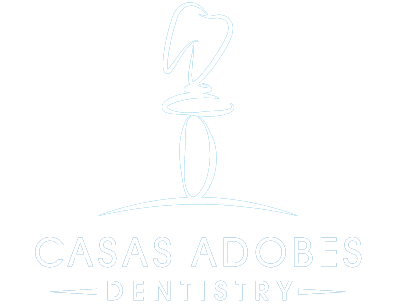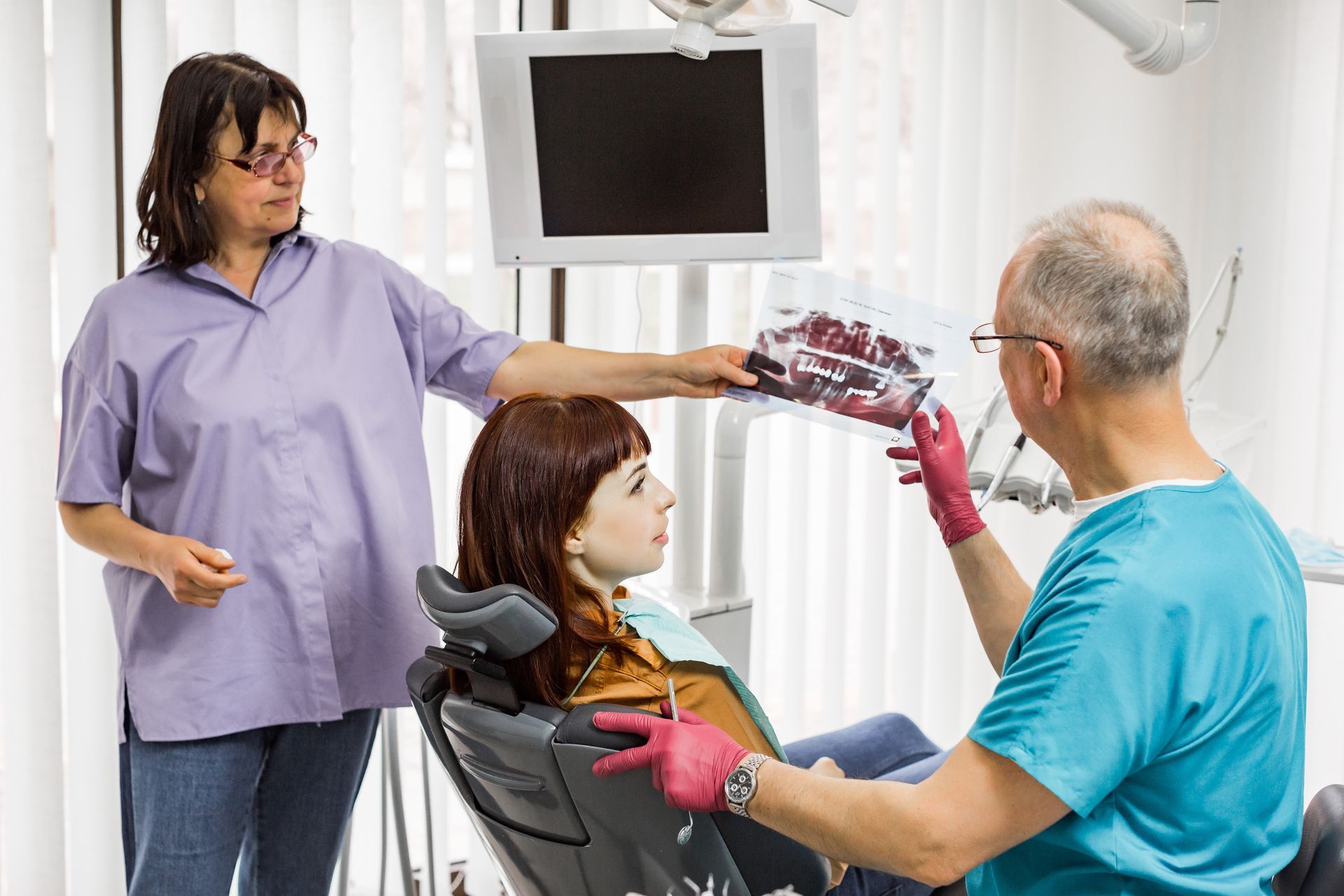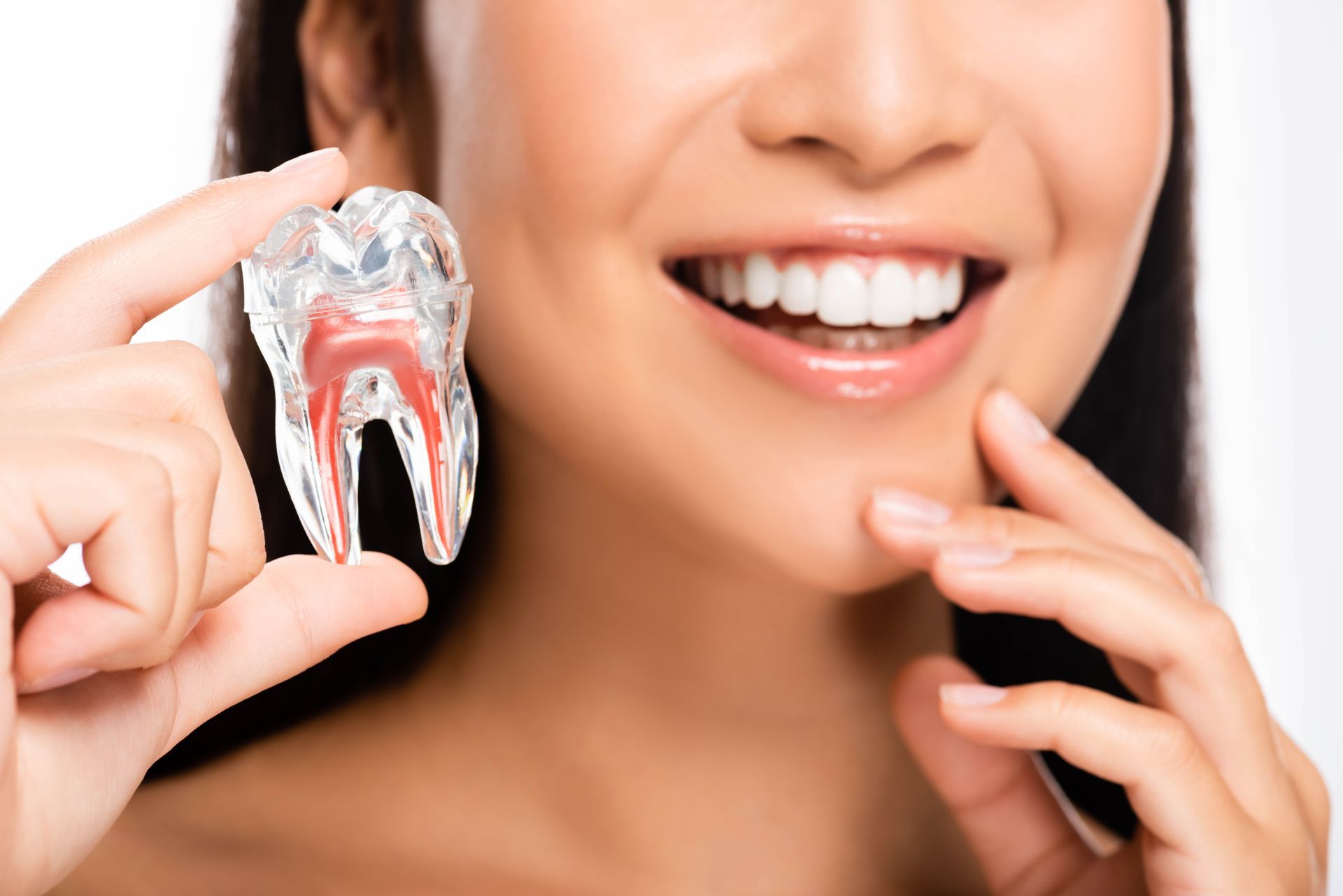Can You Get Dental Implants If You Have No Teeth?

Yes. Even if you have no teeth at all, you can still get dental implants. Thanks to advances in implant technology and full-mouth reconstruction solutions, people who are fully edentulous (missing all their teeth) have effective, permanent options for restoring their smiles.
At Casas Adobes Dentistry, we specialize in full-mouth dental implants and have helped hundreds of patients with complete tooth loss regain their confidence, health, and oral function. Our team uses advanced imaging, precise digital treatment planning, and proven implant systems like All-on-4 to ensure long-term success, even for patients with significant bone loss or long-term edentulism.
Understanding Dental Implants for Edentulous Patients
What Does It Mean to Have No Teeth (Edentulism)?
Edentulism refers to the condition of having lost all natural teeth. This can occur due to advanced gum disease, trauma, decay, or other health conditions. It often leads to jawbone loss, difficulty eating and speaking, and a decline in overall oral health and self-esteem.
Why Dental Implants Are a Preferred Option
Compared to removable dentures and partial dentures, dental implants offer a permanent, stable, and more natural-feeling solution. They help preserve jawbone structure, improve facial appearance, restore chewing ability, and eliminate the discomfort and inconvenience of traditional dentures.

Are You Eligible for Dental Implants If You Have No Teeth?
Bone Structure and Jaw Health
Even without teeth, many patients still qualify for implants. However, one key factor is the health and density of the jawbone. If bone loss has occurred, bone grafting for dental implants or sinus lift procedures may be needed before implants can be placed. A 3D CBCT scan is used to assess bone levels and structure.
Medical Conditions and Lifestyle Factors
Certain conditions like uncontrolled diabetes, heavy smoking, or autoimmune disorders can impact implant healing and integration. That said, many of these issues can be managed with the right care plan. Your dentist will review your full medical history to determine candidacy.
Full-Mouth Dental Implant Solutions
All-on-4 and All-on-6 Implants
These systems are specifically designed for patients with no teeth. They use 4 or 6 strategically placed implants to support a full arch of prosthetic teeth. All-on-4 offers immediate function in many cases, meaning patients can leave with a new smile the same day implants are placed.
Implant-Supported Dentures vs. Fixed Bridges
Implant-supported dentures snap onto implants but are removable, while fixed implant bridges are permanently secured and feel the most like natural teeth. Your choice depends on your preferences, anatomy, and budget.
The Process of Getting Dental Implants with No Teeth
Step-by-Step Overview
- Consultation & Imaging: 3D scans, records, and candidacy review.
- Treatment Planning: Design of implant placement and prosthetic restoration.
- Implant Surgery: Placement of implants under local anesthesia.
- Healing Period: Osseointegration (healing time) typically lasts 3–6 months.
- Final Restoration: Attachment of your custom permanent teeth.
Bone Grafting and Sinus Lifts (If Needed)
If the bone volume is insufficient, bone grafting helps build up the area for better implant support. Sinus lifts may also be needed in the upper jaw. These procedures add a few months to the timeline but greatly improve long-term success.
Costs and Financing Options
Factors That Influence Cost
Pricing depends on how many implants are placed, whether bone grafting is needed, the type of restoration chosen (fixed vs removable), and lab/material fees. Full-mouth solutions like All-on-4 can be more cost-effective than placing one implant per missing tooth.
Insurance and Payment Plans
Dental insurance may cover part of the procedure, especially if extractions or grafting are involved. Casas Adobes Dentistry offers flexible in-house financing and works with third-party payment providers to make treatment more accessible.
What to Expect After Full-Mouth Implants
Recovery Timeline
Most patients experience minor swelling and discomfort for a few days after surgery. Stitches typically dissolve or are removed in 7–10 days. You'll follow a soft diet during the early healing phase. Final restorations are placed after full osseointegration.
Long-Term Care and Maintenance
Implants require the same care as natural teeth: daily brushing, flossing, and regular dental visits. Following proper oral hygiene basics is essential. Avoid smoking and manage health conditions to ensure implant longevity.
Ready to Restore Your Smile? Schedule a Free Dental Implant Consultation Today
Talk to Our Experts About Your Options
Whether you’ve been without teeth for years or are exploring permanent solutions for the first time, our team is here to help.
Discover If You’re a Candidate for Full-Mouth Implants
Using digital imaging and expert planning, we’ll determine if you’re a fit for dental implants, no pressure, just clear answers.
Book Your Consultation Today
Call us or use our simple online form to schedule your free implant consultation. Let us help you smile with confidence again.








